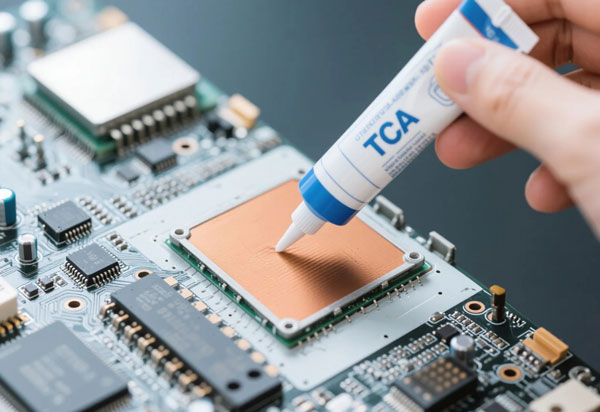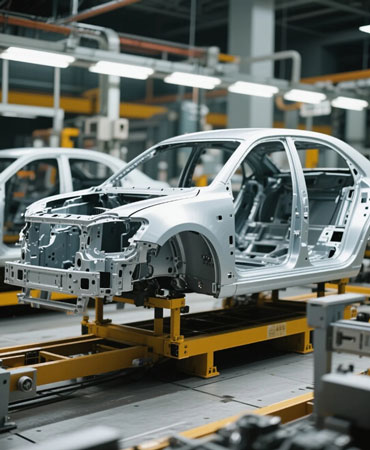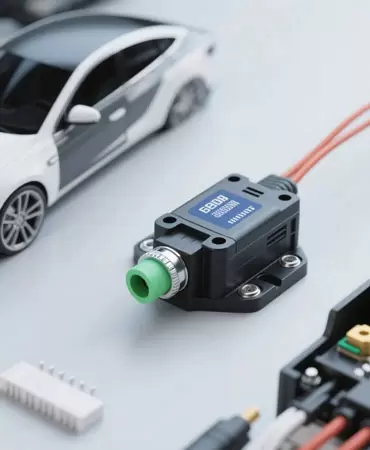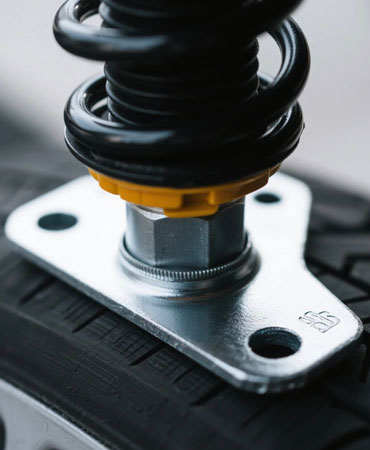 Home / News / Industry News / What factors affect the wholesale price of auto body adhesives?
Home / News / Industry News / What factors affect the wholesale price of auto body adhesives? 2025-09-18
In the automotive manufacturing industry, body adhesives are a key material, directly impacting a vehicle's sealing, structural strength, and durability. With the continuous development of the automotive industry, especially the rapid adoption of new energy vehicles and smart cars, demand for high-performance body adhesives is increasing, and market competition is intensifying. Understanding the factors influencing body adhesive prices is crucial for buyers and wholesalers to control costs and manage supply chains. This article will provide a detailed analysis of various factors, including raw materials, production processes, market supply and demand, brand influence, and policies and regulations.
The main components of body adhesives include chemical raw materials such as polyurethane, epoxy resin, silicone, and acrylic. Fluctuations in raw material prices directly affect adhesive production costs.
Prices of basic chemical raw materials: For example, the price of polyurethane is significantly affected by international oil prices. When oil prices rise, the cost of polyurethane and its derivatives rises, and manufacturers often reflect this cost increase in wholesale prices.
High-performance additives: Adhesives with high heat resistance, weather resistance, or environmental protection require the addition of specialized additives, which are often expensive, such as flame retardants, toughening agents, and UV stabilizers. Fluctuations in additive prices can directly lead to fluctuations in the wholesale price of high-performance adhesives.
Environmentally friendly raw material requirements: In recent years, the automotive industry has seen increasing demand for environmentally friendly materials. Low-VOC adhesives typically have higher production costs than standard products, leading to correspondingly higher wholesale prices.
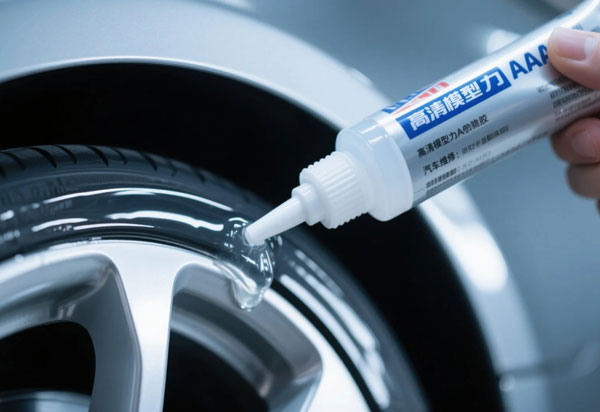
Automotive body adhesives are not only materials but also a reflection of technology. Production processes and technology directly impact wholesale prices.
Production Process Complexity: Some high-performance adhesives, such as two-component adhesives, heat-curing adhesives, or structural adhesives, require multi-step synthesis processes. These complex production processes and high energy consumption increase costs.
Equipment and Automation Level: High-end production equipment and automated control systems can improve production efficiency and product consistency, but these require high equipment investment and manufacturing costs, naturally leading to higher wholesale prices.
Quality Control and Testing: A high-standard quality control system, including performance testing for temperature resistance, corrosion resistance, and shear strength, increases production costs, but also ensures the reliability and stability of the adhesive. Buyers are required to pay for these quality assurance measures when purchasing in bulk.
Wholesale prices are determined not only by costs but also by market supply and demand.
Supply shortfalls lead to price increases: With the rapid development of new energy vehicles and smart cars, demand for high-performance auto body adhesives is increasing. When certain models are in short supply, wholesale prices tend to rise.
Market Competition: If there are many adhesive manufacturers and sufficient supply, prices are generally stable or slightly lower. Conversely, if a particular adhesive has high technical barriers, few manufacturers, and tight supply, prices are likely to be inflated.
Seasonal and Cyclical Factors: The peak automotive manufacturing season in certain regions leads to increased demand for adhesives, causing short-term wholesale price increases; prices may fall during off-seasons.
Brand effects are particularly pronounced in the auto body adhesive market.
Price premiums for well-known brands: Internationally or domestically renowned adhesive brands often have advantages in product research and development, technical support, and after-sales service. These products often command higher wholesale prices than standard brands. Quality and Performance Differences: High-performance adhesives offer superior performance in temperature resistance, corrosion resistance, and shear strength, resulting in high reliability. Therefore, even at a slightly higher wholesale price, they are recognized by OEMs and parts suppliers.
After-sales and Technical Support: Brand manufacturers typically provide technical guidance and construction training, which contributes to higher prices than standard products.
The automotive industry is significantly impacted by environmental regulations, and adhesives, as key materials, are also subject to regulatory oversight.
Environmental Regulations Impact Costs: Countries have strict requirements for hazardous substances (such as formaldehyde and VOCs) in adhesives used in automotive production. Companies must use environmentally friendly raw materials that meet these standards, which increases production costs and, in turn, affects wholesale prices.
Certification and Standard Requirements: High-end automotive body adhesives typically require certifications such as ISO and IATF16949. Products that meet these standards cost more and, consequently, have higher wholesale prices.
Local Policy Differences: Environmental and safety requirements vary across regions, which can lead to different wholesale prices for the same adhesive in different markets.
Automotive body adhesives are typically chemicals, requiring high transportation and storage requirements. Transport Costs: High-performance adhesives are often liquid or two-component products, requiring temperature control and leak prevention during transportation. Logistics costs are higher than for standard materials, which is reflected in wholesale prices.
Warehousing and Inventory Management: To ensure product performance, adhesives must be stored in specific environments, resulting in high inventory management costs. This is especially true when wholesalers stock large quantities of adhesives, which can impact wholesale quotes.
In addition to the major factors listed above, there are also indirect factors that may affect the wholesale price of automotive body adhesives.
Exchange Rate Fluctuations: Imported raw materials or foreign-branded adhesives are affected by exchange rates, and wholesale prices may adjust when costs rise.
Technological Updates and R&D Investment: Companies are constantly developing new adhesives to improve performance and environmental performance. These new products are typically priced above the market average.
Customer Bargaining Power: Wholesale prices are also influenced by the purchase volume and negotiating power of the buyer. Large customers typically receive lower wholesale prices.
In summary, a variety of factors influence the wholesale price of automotive body adhesives, primarily including raw material costs, production processes, market supply and demand, brand recognition, policies and regulations, and logistics and inventory costs. Understanding these factors helps buyers manage costs, select appropriate suppliers, and ensure adhesive performance and quality. With the development of the automotive industry, high-performance, environmentally friendly automotive body adhesives will become mainstream, and wholesale prices will be increasingly influenced by the combined influence of technological innovation and market supply and demand.
In actual procurement, companies should not only focus on price but also comprehensively consider adhesive performance indicators, manufacturer qualifications, and after-sales service to achieve the most cost-effective purchasing decision.
As a professional wholesale supplier of automotive body adhesives, Polyton has dedicated itself to the research and development and wholesale of high-performance adhesives for many years, providing stable and reliable products to various automakers. Leveraging its independent production capabilities and comprehensive supply chain management, Polyton is able to effectively control costs and achieve price advantages while ensuring product quality and performance. Whether it's standard body adhesives or highly weather-resistant, environmentally friendly adhesives, Polyton can meet customer needs at competitive wholesale prices, helping companies achieve the optimal balance between cost control and product quality, and providing cost-effective solutions for automotive manufacturing and repair.
